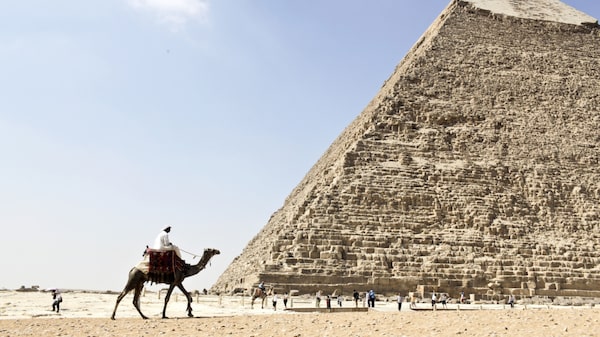Caracas — $950 for one night in eastern Caracas? That’s a price people are playing, as luxury hotels in the Venezuelan capital continue to operate, and are even adapting their prices to international standards, despite the economic crisis in the country and beyond the small economic rebound that has occurred.
Opened in 2014, the Hotel Cayena, the first property of The Leading Hotels of the World chain to open in Venezuela, offers one of the most expensive stays, with rooms ranging from $400 to $950 a night, offering an oasis of luxury in the fast-paced and turbulent city.
Discreet and conservative, the Cayena, located in La Castellana neighborhood, is a favorite of executives, diplomats and artists who have visited the country in recent years, and was chosen by the new Colombian ambassador to Venezuela, Armando Benedetti, during his first working visits, since he did not yet have a fully equipped residence, following the recent reactivation of diplomatic relations between the two countries.
“It is the comfort, security and confidentiality that we like the most”, says a frequent guest, who preferred not to be identified. And that is precisely the objective of the boutique hotel, which, as stated on its website, tries to give the sensation of being a private refuge.
With both suites and standard rooms, the Cayena not only stands out for its elegance and high prices in an area where it competes with other prestigious hotels - such as the equally luxurious Renaissance, but which offers cheaper accommodation, from $200 per night - but also stands out for its relatively high occupancy rates by Caracas standards.

For the president of Venezuela’s hotels federation (Fenahoven), Alberto Vieira, the recovery of the sector during the last year has been significant, with an occupancy rate in June of 34%, which represents a 12% increase over 2021 levels, following the closure of many hotels during the pandemic.
And the luxury hotel category has been the biggest beneficiary of the reopening.
The head of Fenahoven, which represents 287 hotels, some of which are five-star, says the profitability of the luxury segment in recent months has been due to the premium tourism sector in the country, boosted by the arrival of Russian and Iranian citizens, but also by entrepreneurs who are looking to invest in the country.
“The premium segment has not done badly, and they also have rates that are substantially different from those of our other member hotels, which are the more modest hotels, and which allows them to maintain a cost and service structure that is better than other hotels in the country, although those hotels also aim to attract tourists,” Vieria said in conversation with Bloomberg Línea.
He said that the positive balance sheet of some of the luxury hotels may not apply to all levels of the sector, as a consequence of the failures in public services, to which not all can adapt, while tourism continues to be limited.
Five years ago, hotel’s expenditure on utilities were less than 8% but today represent close to 50%, which complicates the operation of most three-star hotels, while first-class tourism in the country is controlled by the government through cultural agreements with allied nations, such as Cuba, Russia and Iran, concentrating occupancy on more luxury hotels and benefiting few in the sector.
“[The government] has talked to us about tourism proposals. They have told us that tourists will come from Cuba, and that there will be more commercial tourism, and they have also talked to us about Poland, that is, a few countries, but one as a hotelier says ‘I don’t just want those from Russia, I want them all to come,’ but of course, that goes hand in hand with connectivity” for the country, Vieira adds.
The current focus, in his opinion, remains on business tourism, and which although there are high expectations for that segment, it does not meet the need for occupancy that is required by the entire sector.
“It’s not bad, a contingent of executive tourists coming, which will generate revenues for the hotels and related activities, but traditional tourism also needs to be promoted,” he said.
There are at least 10 five-star hotels in Caracas that have managed to stay in business despite the pandemic, and in the face of the country’s adverse economic situation, which has registered a slight improvement as each segment has found a space for reinvention.
The Venezuelan Association of Five-Star Hotels (Avecintel) did not immediately respond to Bloomberg Linea’s request for comment on how the segment is recovering from the pandemic, however.




